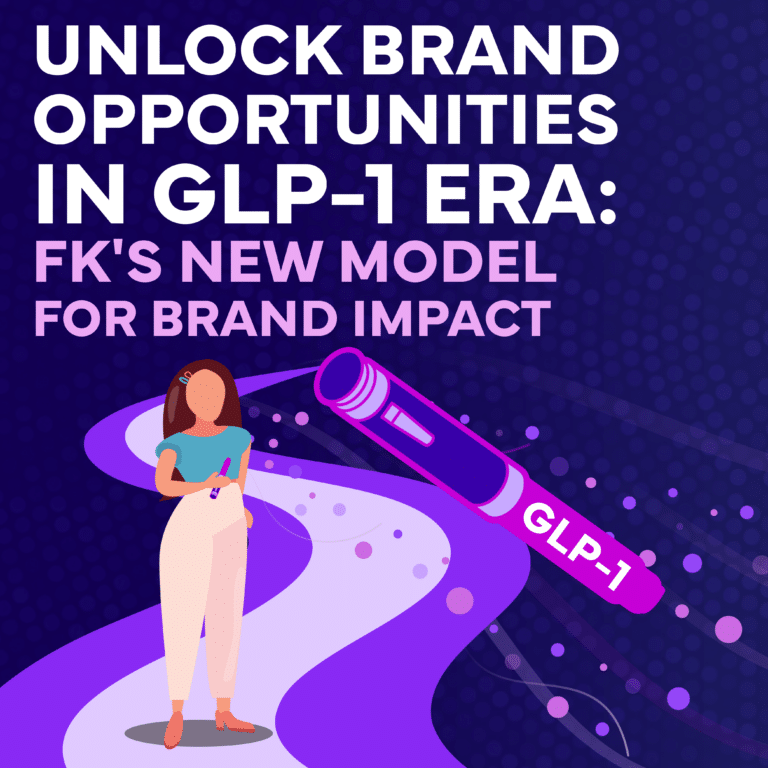Brands take note! The first wave Generation Z are not headed ‘back to school’. oldest Gen Z are now well established in the hybrid workplace.
In this brave new world of Gen-Z, brands must evolve quickly. Brand connection must leap beyond fake collaboration, engineered social content, and a relentless push of promise, purpose and values – to become an integrated part of the Gen-Z journey. That integration must be wanted not intrusive, seamlessly integrated, multilayered to fit degrees of intimacy, and adaptive to a range of personal consumer journeys. Brands must seek an invitation spontaneously from Gen-Z to join their journey (not the other way around). Not so simple!
Before we discuss branding and marketing to Gen-Z, we want to set a contextual understanding of who they really are – and how they may impact the real world ahead of them.

Identifying Gen-Z:
Here are the stats: Gen-Z is and will be a mammoth future force. Projected to top 80 million, Gen-Z soon will represent over one-quarter of the population, becoming the largest living generation by 2020. They’re also the most culturally diverse generation in history, the last of a Caucasian majority, with the largest Hispanic populace (24% Gen-Z versus 20% Millennials or 11% Boomers).
Their spending power is, and will be, vast. Gen-Z already has an estimated $200 billion annual buying power, even with the majority of the generation below full employment age. Moreover, Gen-Z holds sway over an additional $600 billion spending power via tight-knit relationships with their parents. In size, scale, and scope of influence, they matter.
Every year for the next 15, Gen-Z will gain an ever-stronger foothold of influence. Getting jobs, living on their own, voting and contributing to the broader financial world. All that comes with broadening power – and entering their sphere is profoundly challenging.
What’s Shaped Them:
Generations are made by the conditions that underscored their formative years, particularly ages 5-12 when they’re further exploring and discovering their identities outside of the tightknit family environment. Gen-Z is a wave of über-pragmatic, hyper-focused young adults (emphasis on the adult) who live as much in the digital sphere as in reality. What made them who they are?
Gen-X Parenting: The greatest influence on Gen-Z has been their Gen-X parents – who embody a unique parenting style. Gen-X were defined as ‘latchkey kids’, who practically raised themselves amid divorce and two working-parent households. As a result, Gen-Xers are realists, whose parenting goals revolve around preparing their Gen-Z children for the world as it is, propelling them to independence, and giving them tools to succeed or fail and rebound on their own merits. While Gen-X are deeply involved parents, their Gen-Z children have not been coddled or sheltered to the same degree as Millennials.
Security Scares: If the first Gen-Zers were born in 1996, the oldest members of this generation would have been 5 years old at the time of 9/11, meaning they likely have no conscious memory of the defining millennial moment. Gen-Z may not remember 9/11 itself, but they grew up within the ominous landscape of terrorism and security that followed. There’s simply never been any other existence for Gen-Z. Beyond national threats, Gen-Z also faced ever-present concerns close to home, namely school safety. Gen-Z has been raised with the notion that there is no real safe space, and one must always be vigilantly aware of potential danger.
Financial Doubt: The eldest of Gen-Z were age 12 when the Great Recession of 2008 hit – vividly experiencing the yearlong collapse and subsequent economic atrophy of years to follow. Gen-Z looked on as family, friends, and neighbors lost homes, jobs, or security – or, at minimum, experienced a cinching of the family wallet. Some grew into an early adulthood, taking on jobs while maintaining school, helping at home as both parents worked, or simply doing without so parents could cover necessities. They also learned that no job, profession, or lifestyle was a golden ticket or guarantee.
Online Life: Gen-Z were born on the internet. For those born in 1996, Google became a verb at age 6, Facebook moved into the public sphere at age 10, iPhones launched at age 11, Siri was born at age 15. Gen-Z have never lived without perpetual accessibility and connectivity. Tech is not a wonder, it’s an ever-present, ever-adapting enabler that facilitates life. In the face of their Millennial cousins’ over-sharing mistakes, it’s also a place where some Gen-Z have learned to be more private, even guarded – though, others still use the virtual sphere as a platform of self-expression and self-branding, where popularity is measured in followers and likes.
Gen-Z is the first generation to use the digital/social media in their formative years – and live out their personal identify exploration and creation amongst that. Gen-Z have had to learn that online life can present pitfalls: like developing narcissistic tendencies or creating an environment of cyber-bullying. Segmenting Gen-Z will move beyond real-world behaviors and attributes – to include social personas. Because Gen-Z live a dichotomy of real me/digital me – and, the me’s may not always equate.
Who Is Gen-Z, Really?
In our work to date with Gen-Z, we’ve seen several core characteristics and psychographic mindsets, which flex and flux person to person, as you’d expect across a group that ranges from pre-school to college.
Traditional Pragmatists:
With all they’ve seen in the world already, Gen-Z are realistic in their aspirations and goals. They have seen in real-time that life holds no guarantees, so they set goals that are attainable, albeit with work. They are not young dreamers. They know how it is – and they’re already envisioning a plausible way forward. As they navigate to the goal, they operate quite pragmatically. Gen-Z know that foibles, challenges, even problems will most certainly arise – and that the only solution is to work, adjust, and rework toward a solve. Gen-Z are also financially savvy and genuinely choiceful about what, when, and where they choose to invest themselves – and, even subconsciously, they act quite deliberately on what they will and won’t do to achieve their goal.
Social Progressives:
Gen-Z is growing up as the most diverse group in history. They are endlessly aware and acceptors of equality. Most Gen-Z were raised with an African-American president. Ellen’s groundbreaking ‘coming out’ happened while Gen-Z were in diapers. Special needs have been mainstreamed throughout their lives. Most Gen-Z embrace “difference” as norm and expect real acceptance, not just tolerance – of themselves and those around them. They will resist or critique their peers or elders when they see injustice or inequality. It’s not a broadscale, rally the troops, cause a rebellion activism as with their Millennial cousins. It’s a softer, groundswell caused by their ripple within a real/virtual network that spans continents, but it’s still powerful and indelible in result.
Digital Savants:
Having been online since before they could read, Gen-Z live in a perpetual “on” state, adapting between real and virtual selves without pause. They are not just tech savvy – they are one with tech, indoctrinated and integrated into all that it offers them and their journeys. The downside of this is it does create a state of instancy bias for Gen-Z, whereby, if it’s not nearly immediate, in response or results, it’s way too slow.
Being a Brand for Gen-Z:
As a result of Gen-Z’s distinctive characteristics, the way they relate to and interact with brands differs from other generations. Gen-Z’s brand relationships are more likely to start when they discover an interest or passion, or social spark, and they set forth on one of their journeys. They compare purchase options and prices, assemble tools they need, experiment, game, network and create their experience. If they love it, they may continue, even commercialize it into an entrepreneurial pursuit. At any point in this consumer journey, they may identify a brand as a compatriot on this journey – and, brand alliance may follow full-time. This “interest-immersion-experience-alliance” brand model is prototypical of Gen-Z, whether they are looking to create their own slime, find the perfect prom dress, or buy their first car.
Getting invited into Gen-Z’s journeys is an enormous challenge. There are different levels of conscious and sub-conscious decision making on these journeys that a brand needs to understand beyond database segment and cookie trail analysis. A traditional push model or linear conversion model will not crack into the Gen-Z journey – rather, the Gen-Z consumer must initiate interaction with the brand, not the other way around.
So, how can brands gain an invitation into Gen-Z’s journey?
First and foremost, brands must BE IMPERATIVE. Gen-Z is truly prudent and pragmatic with spending money – they’re uniquely thrifty for a young generation. Plus, they believe they can DIY most anything. With a Tasty or YouTube video, Gen-Z can take an interest and create a whole new reality. You must offer usefulness beyond what they believe they can do on their own – or be a quality tool in their journey.
Second, brands must be open to influence, quickly adaptive, completely transparent and unfiltered.
This makes brands live at all times – and the challenge is to always demonstrate not only authenticity, but BRAND INGENUITY in the context of a real consumer journey.
Third, as brands adapt and become a genuine part of the Gen-Z journey, they need to wrestle with some challenging questions:
- What are the different ways Gen-Z initiates interaction with a brand — are they seeking advice, entertainment, self-expression, service, knowledge? How can your brand be responsive to those different needs?
- What is your brand’s distinctive voice? How will that voice flex across different journeys?
- As brands become more interactive, they need to become more “human” – who is your brand? What are the values, traits, beliefs, characteristics of your brand, and how does it adapt to different situations?
- How does your brand pyramid, house or key need to adapt to reflect this more dynamic, journey-centric way of being for brands?
- How should you define an inspiring strategic and bullseye target for Gen-Z when there are so many different journey types – and so many programmatic options to play out?
Welcome to adulthood, Gen-Z! We look forward to journeying with you for years to come.
At Fletcher Knight, we know brand futures rest in understanding Gen-Z, in deep and meaningful ways, for who they are and what they want out of life. We’ve assembled our own Gen-Z LiveLab – for easy digital access to real-time answers to your brand questions. If you want to learn more – and find ways to make your brand part of the Gen-Z consciousness, contact us today.






